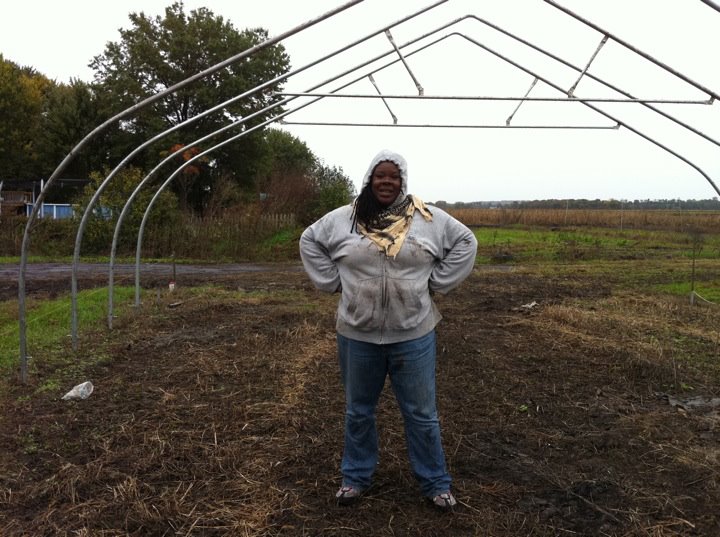 Grist is proud to present the Change Gang — profiles of people who are leading change on the ground toward a more sustainable society and a greener planet. Some we’ve written about before; some are new to our pages. Some you’ll have heard of; most you probably won’t. Know someone we should add to the Change Gang? Tell us why.
Grist is proud to present the Change Gang — profiles of people who are leading change on the ground toward a more sustainable society and a greener planet. Some we’ve written about before; some are new to our pages. Some you’ll have heard of; most you probably won’t. Know someone we should add to the Change Gang? Tell us why.
For Ximena Prugue, being “young and naïve” is a strength, not a weakness.
“It makes you that much more powerful,” says the 21-year-old. “You don’t have all those years of experience deterring you from thinking that you can do something.”
To support this thesis, Prugue offers herself up as Exhibit A. Born and raised in Miami, Fla., the daughter of Peruvian immigrants, she had no idea what she was getting herself into when she decided to attempt to alleviate “energy poverty” in rural India by distributing solar-powered flashlights.
She didn’t know about the hassles involved in setting up a nonprofit 501(c)(3) organization, or how Indian customs officers would react to a girl whose luggage was stuffed with $3,000 worth of lights. She didn’t know how difficult it would be to fundraise, or make connections with on-the-ground aid workers in India who didn’t understand why an American teenager was badgering them. She underestimated the difficulties inherent in simultaneously holding down a part-time job, attending full-time community college, and running her own nonprofit. Perhaps most daunting of all, she knew nothing whatsoever about India.
Before her first visit, she says, “I literally had not even eaten Indian food. I hadn’t even seen Slumdog Millionaire.”
All she knew, she says, is she wanted to “make a difference.”
By the time she was a 19-year-old studying mechanical engineering at a community college in Miami, she already boasted a resume filled with socially meaningful work. In high school, she made a documentary about homeless sex offenders living under a bridge in southern Miami. She also helped raise money to support the construction of tilapia farms in Haiti. But she was looking for a project that would go beyond just fundraising — something that she could sink her teeth into.
“I’ve always been into art and design,” she recalls, “so I read a lot of design blogs and I stumbled across this article about the world’s most affordable solar-powered light.”
She proposed to one of her professors that the lights might be useful in Haiti. He told her to do some more research and encouraged her to apply for a grant from the Clinton Global Initiative University, a three-day conference that brings together thousands of young people interested in doing progressive work.
The conference was a life-changing event.
“There were people that were my age who already had their 501(c)(3) status,” recalls Prugue. “That had already had gone to all these different places and done amazing things. I was just like, wow, I have absolutely no excuse to say, ‘Well, oh well, I’m young. Oh well, I still have school.’ There was absolutely no excuse for me to not be doing something.”
She ultimately decided that Haiti didn’t have a big access-to-cheap-energy problem. Rural India, she determined, was where conditions were worst — where the lack of electricity was a major obstacle blocking people’s escape from deep poverty. She won a grant from the Clinton Global Initiative, built a website, set up Giving the Green Light as a nonprofit, and started emailing. A year and a half later, she was headed to India with her bag of lights. And now she knows exactly what she wants to do with the rest of her life.
“I am studying mechanical engineering,” says Prugue, “because I want to be the type of engineer that designs products that you can implement into developing countries to solve all sorts of problems.”
Looking back, Prugue doesn’t downplay the difficulties she faced.
“It doesn’t come easy. It definitely doesn’t come easy,” she says. “But if you work hard and you are really doing it with genuine good intentions — you’re not doing it because you just want to put it on your resume and get into a good college — it will come. It will happen. I believe in positive energy, and that that energy will come back to you, and all the karma will work out. And I really hope that other young people try to change the world too, because I feel that that is where the change is going to come from.”



